Intercultural Competence in Teaching (INTERACT)
Intercultural Competence in Teaching (INTERACT)
Go to:
- Introduction
- Learning objectives
- Course structure
- Requirements of participation and grading
- Credit points and workload
Introduction
You are devoted to education and would like to share your professional/academic expertise with colleagues around the globe? Then, please join the ultimate Intercultural Competence in Teaching (INTERACT)!
INTERACT is an interactive distance-learning course of the Center for Teacher Education and Educational Research of the “Technische Universität Dresden” that encourages collaborative learning in/on cross-cultural perspectives.
Alternating synchronous and asynchronous sessions invite participants to work and reflect upon intercultural opportunities and challenges in self-determined, exploring, and flexible ways. They conclude with team-based creative assignments. Apply your knowledge in real-scenario critical incidents and reflect your skills in rewarding assessments!
Learning objectives
This course is aimed at helping students to understand the culture, the effect of cultural imprinting on behaviour and the significance of intercultural competence to become global citizens. The detailed learning objectives are:
-
Defining culture from a particular point of view/perspective
-
Understanding terminological scopes of defining culture, including inherent inconsistencies/contradictions
-
Recognizing the anthropological origins of culture
-
Applying the concept of culture to individual narratives
-
Detecting culture-involving/cross-cultural settings
-
Defining the scope between inter-personal and inter-cultural interaction
-
Understanding the notion of inter-culture and its practical relevance in application
-
Classifying intercultural competence into the list of competencies
-
Liaising professional settings of cross-cultural encounters with particular aspects of competence
-
Understanding the notion of intercultural training
-
Distinguishing between culture-general and culture-specific training
-
Identifying and characterizing different modes/methodologies of intercultural training
-
Describing and categorizing cultures according to patterns
-
Understanding the potentials and limitations of the concept of dimensions of culture
-
Explaining and defining individual dimensions of culture
-
Applying dimensions of culture to cross-cultural encounters
Course Structure
The course is made up of a series of complementing modules, each ending with activities that encourage the students to reflect on the contents and apply them in practical situations. You can handle the modules both in a sequential and non-systematic way. There are brief introductory modules explaining essential concepts that you should apply in short individual assignments immediately afterwards.
Two critical incidents are available for analysis to conclude each section. These are intended to stimulate and foster synchronous collaborative efforts among the participants. They culminate in two more extensive optional assessments to choose from that provide the basis for accomplishing the whole course
There are intervals of self-study, and individual e-tutoring for technical questions is available on request. Facilitated virtual meetings and expert discussions with intercultural trainers will take place every two to three weeks to encourage maximum interaction and engagement with the contents.
Requirements of participation and grading
-
Proven English language proficiency of at least B2 on the CEFR scale and convincing communicative skills
-
Strong commitment, including time, to asynchronous learning experiences, active participation in the tasks and activities
-
Readiness for collaborative, open-minded working and learning in an international context
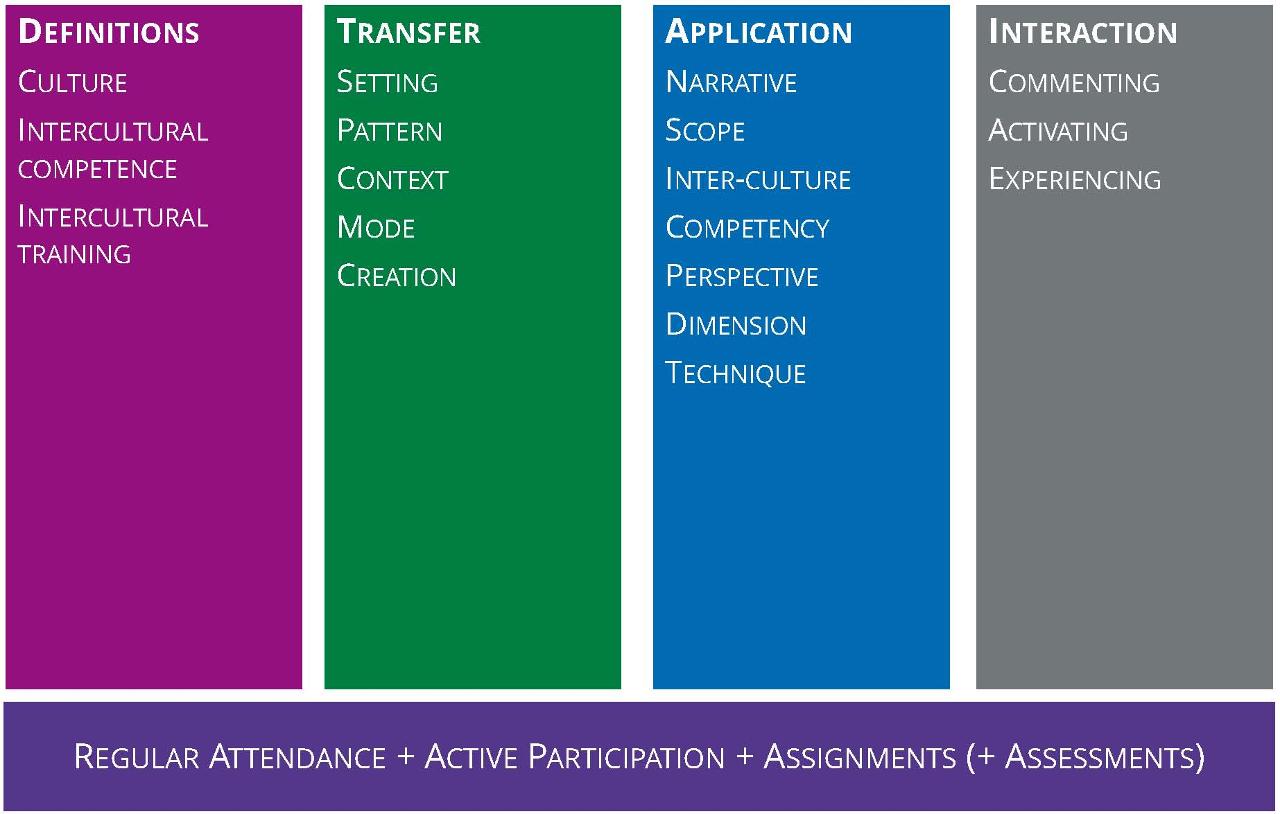
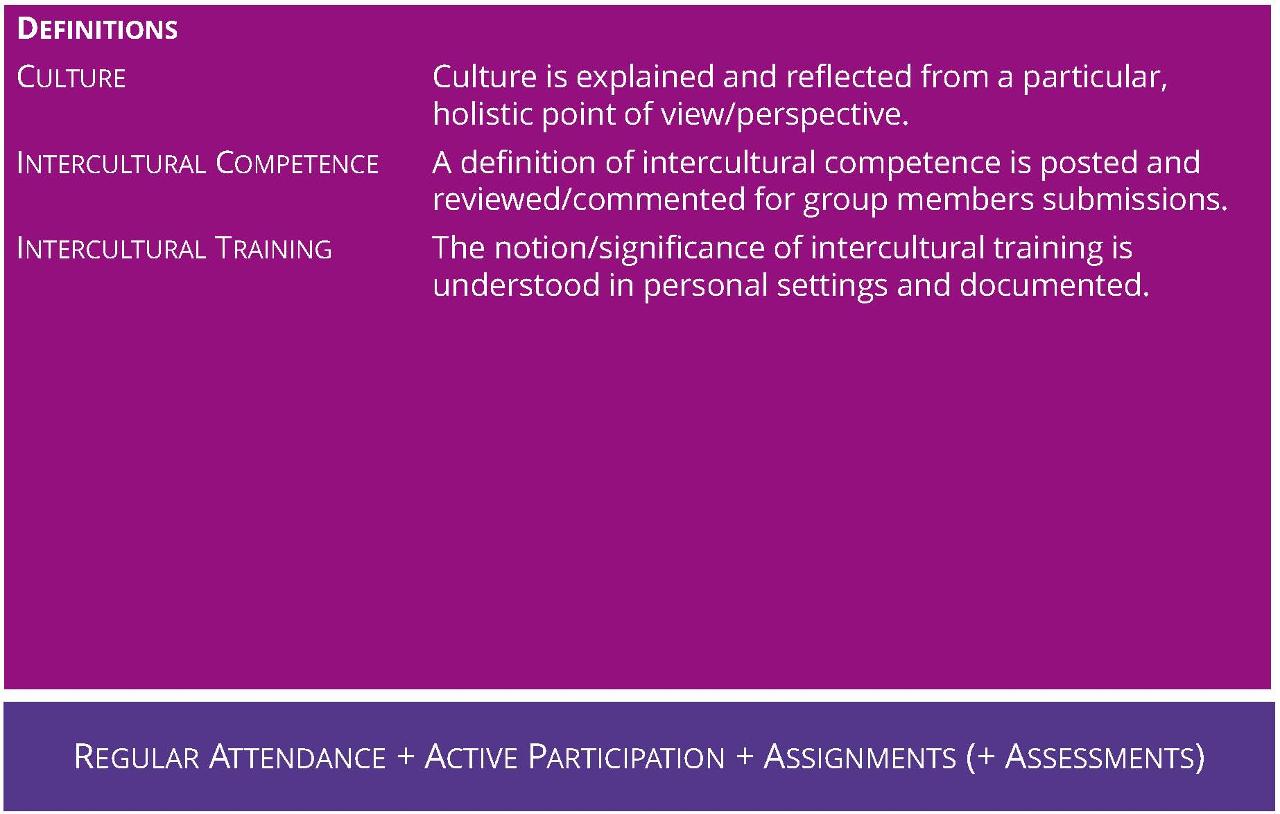 |
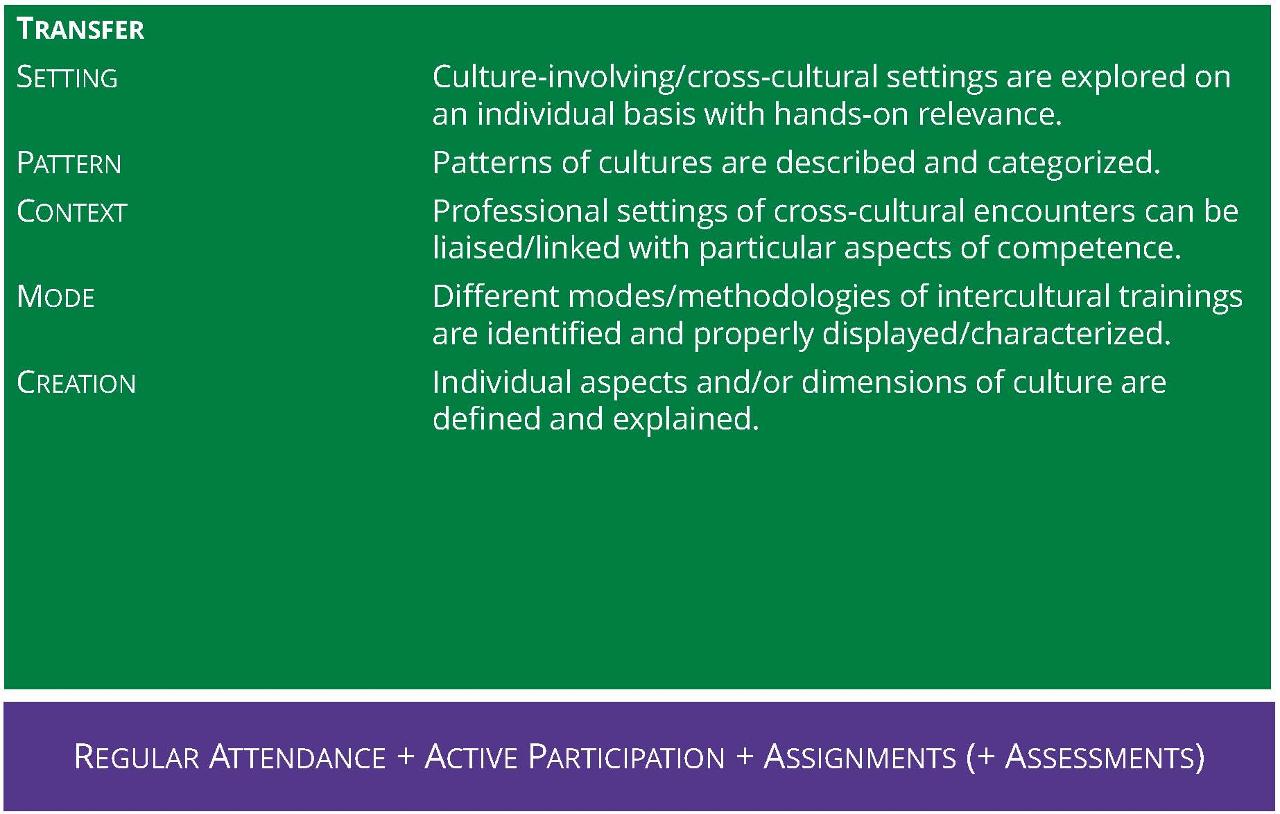 |
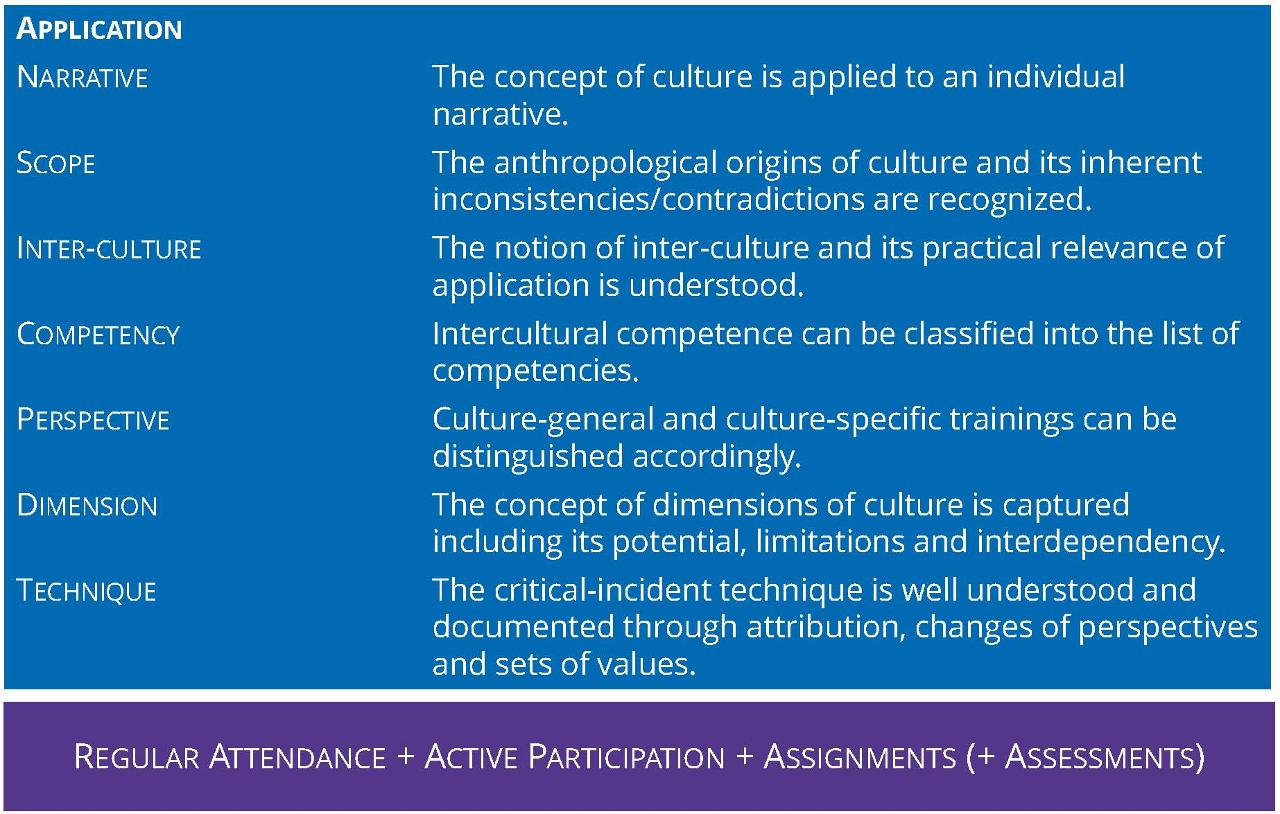 |
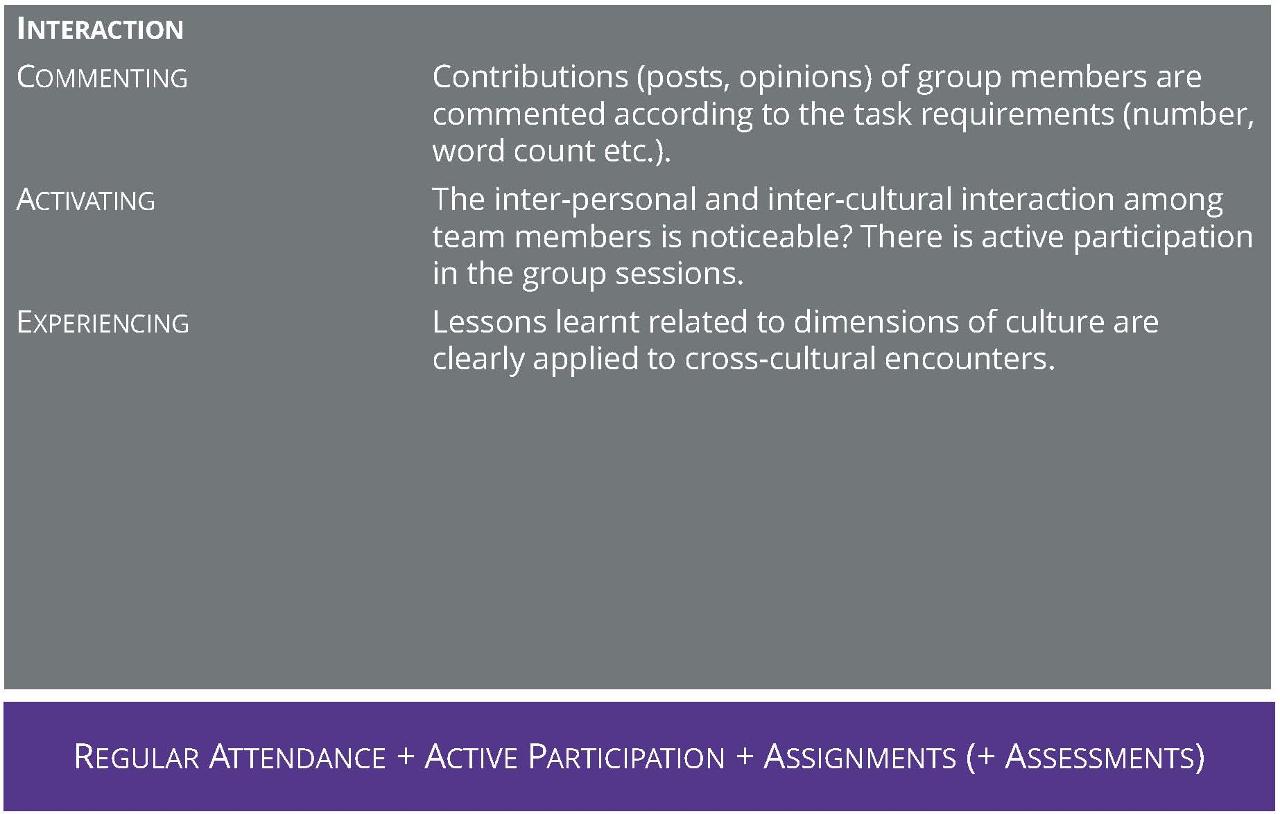 |
Credit points and workload
The workload depends on the track option. Three tracks are available to choose from:
|
3 credit points |
4 credit points |
5 credit points |
|---|---|---|
| study the intercultural basics & assignments | ||
| analyse any one critical incident | analyse both critical incidents | |
| ------ | ------ | conclude with three of six assessments |
Please select how many credit points you would like to receive for the course in our registration form.
You are devoted to education and would like to share your professional/academic expertise with colleagues around the globe? Then, please join the ultimate Intercultural Competence in Teaching (INTERACT)!
INTERACT is an interactive distance-learning course of the Center for Teacher Education and Educational Research of the “Technische Universität Dresden” that encourages collaborative learning in/on cross-cultural perspectives.
Alternating synchronous and asynchronous sessions invite participants to work and reflect upon intercultural opportunities and challenges in self-determined, exploring, and flexible ways. They conclude with team-based creative assignments. Apply your knowledge in real-scenario critical incidents and reflect your skills in rewarding assessments!